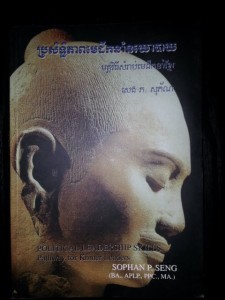Hun Sen asks UN for help on Vietnam problem
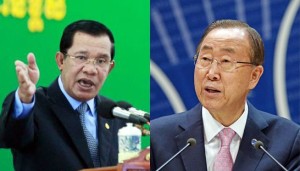 Prime Minister Hun Sen yesterday wrote to UN Secretary-General Ban Ki-moon requesting access to the original, constitutionally mandated maps of Cambodia, saying he wanted to end the “extreme nationalism” whipped up by the opposition over the Vietnam border.
Prime Minister Hun Sen yesterday wrote to UN Secretary-General Ban Ki-moon requesting access to the original, constitutionally mandated maps of Cambodia, saying he wanted to end the “extreme nationalism” whipped up by the opposition over the Vietnam border.
The request came as a Cambodia National Rescue Party lawmaker announced plans for a 10,000-strong march on a disputed patch of border in Svay Rieng, the scene of a violent clash between a CNRP-led group and Vietnamese authorities on June 28.
In the letter, dated yesterday, Hun Sen asks to borrow the original Bonne maps, scale 1/100,000, which were developed between 1933 and 1955 by French colonial authorities and deposited by late King Norodom Sihanouk with the UN in 1964.
Noting Sihanouk’s efforts to ensure the Kingdom’s borders were internationally respected, Hun Sun tells Ban Ki-moon the government needs the maps to “verify” its ongoing demarcation process.
The premier also said he sought the maps in a bid to “end the incitement of extreme nationalism” by “some quarters” in Cambodia, which “may lead to catastrophe”, a pointed reference to the CNRP’s recent push to highlight alleged encroachment by Vietnam.
He notes Cambodia’s “wellbeing”, “territorial integrity and sovereignty” and “the cause of peace and stability in the region”, among reasons for requesting cooperation.
The opposition has long accused the government of using maps developed with Vietnam during its occupation of the Kingdom in the 1980s to demarcate the border, which they say cedes Cambodian territory, instead of the French-developed ones cited in the constitution.
The CNRP has highlighted examples of alleged Vietnamese encroachment into Cambodia in Ratanakkiri, Kandal and Svay Rieng provinces, prompting official protests to Hanoi.

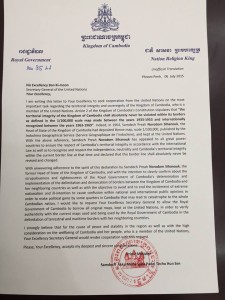
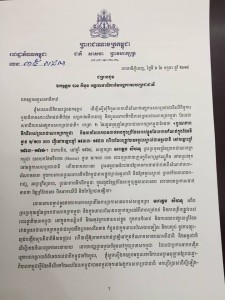
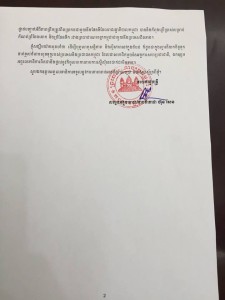 clearer and clearer to the Cambodian people and the international communities that:
clearer and clearer to the Cambodian people and the international communities that: